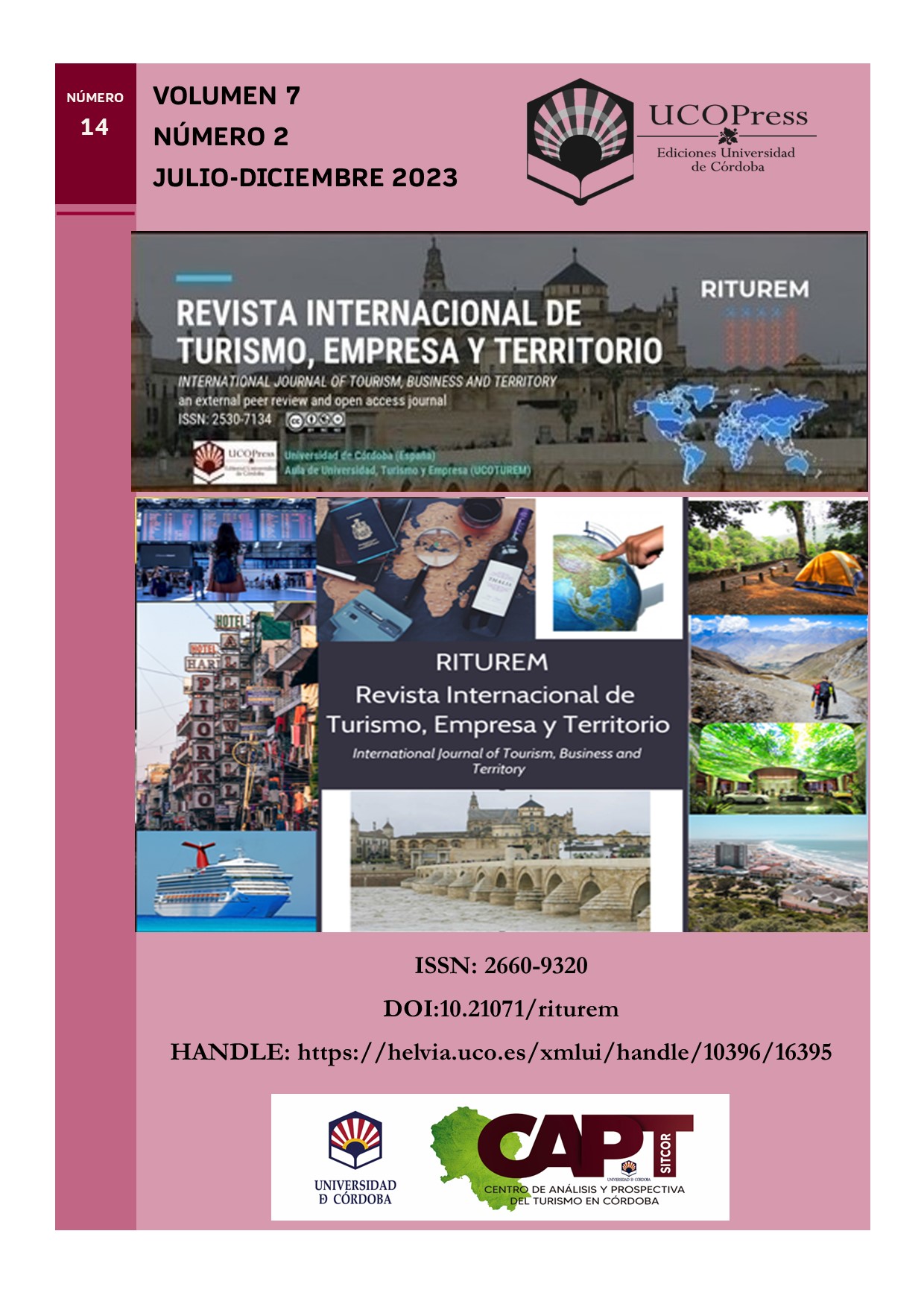Iniciativas de innovación de los prestadores de servicios turísticos del Valle del Cauca (Colombia) ante las amenazas de la pandemia de COVID-19
Contenido principal del artículo
Resumen
Este articulo plantea que en el mes de marzo del año 2020 de manera oficial se declaró el estado de emergencia sanitaria por causa de la llegada del virus SARS COV-2 al territorio colombiano derivada de la enfermedad denominada COVID-19. Esta situación afectó directamente a los prestadores de servicios turísticos del departamento del Valle del Cauca, quienes vieron amenazada la estabilidad de sus empresas. Esta investigación, realizada a lo largo del año 2022, tiene como objetivo describir las principales amenazas a su estabilidad e identificar respuestas innovadoras ante la pandemia de COVID-19. Se desarrolla esta investigación siguiendo una metodología de investigación mixta, donde mediante una encuesta se logró obtener datos cuantitativos sobre los principales obstáculos que amenazaron la estabilidad de los prestadores de servicios turísticos. Asimismo, se realizaron entrevistas semiestructuradas para identificar las innovaciones con las que se dio respuesta a la crisis. Finalmente, los resultados arrojados por ambos instrumentos permitieron analizar los obstáculos que constituyeron las amenazas y las innovaciones efectuadas por los prestadores de servicios turísticos.
Palabras clave: Turismo, Pandemia, Innovación científica, Cambio tecnológico, Legislación, Empresario.
Descargas
Detalles del artículo
Avisos de derechos de autor propuestos por Creative Commons
Política propuesta para revistas que ofrecen acceso abierto
Aquellos autores/as que tengan publicaciones con esta revista, aceptan los términos siguientes:
- Los autores/as conservarán sus derechos de autor y garantizarán a la revista el derecho de primera publicación de su obra, el cuál estará simultáneamente sujeto a la licencia Creative Commons CC BY-NC 4.0 (https://creativecommons.org/licenses/by-nc/4.0/deed.es ) , que permite a terceros compartir la obra y permitir obras derivadas siempre que se indique su autor, su primera publicación en esta revista y cuando no se haga uso comercial.
- Los autores/as podrán adoptar otros acuerdos de licencia no exclusiva de distribución de la versión de la obra publicada (p. ej.: depositarla en un archivo telemático o en un repositorio institucional o publicarla en un libro monográfico) siempre que se indique la publicación inicial en esta revista.
- Se permite y recomienda a los autores/as difundir su obra a través de Internet (p. ej.: en archivos telemáticos y repositorios institucionales o en su página web) antes, durante y con posterioridad al proceso de envío, lo cual puede producir intercambios interesantes y aumentar las citas de la obra publicada. (Véase El efecto del acceso abierto).
